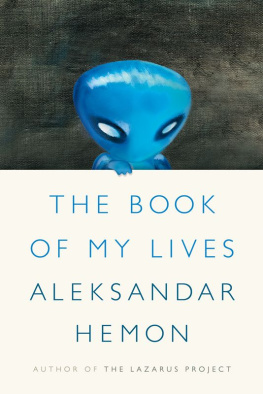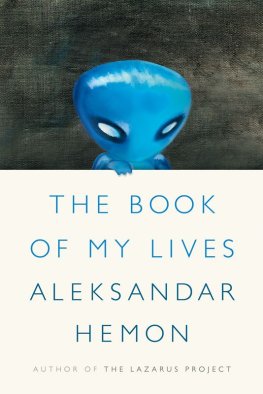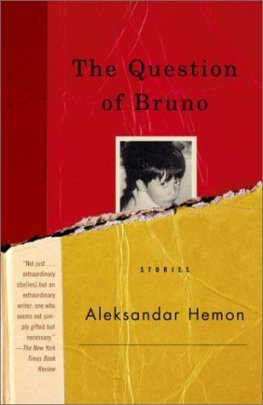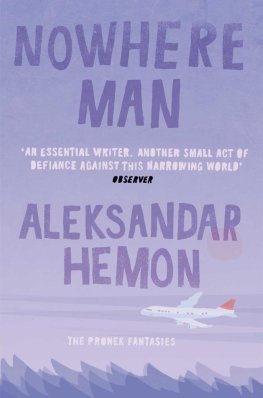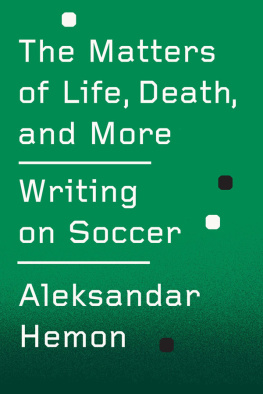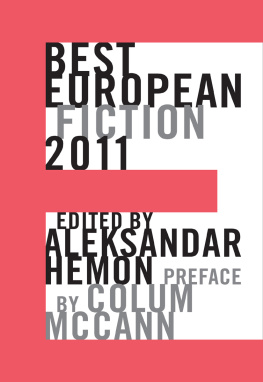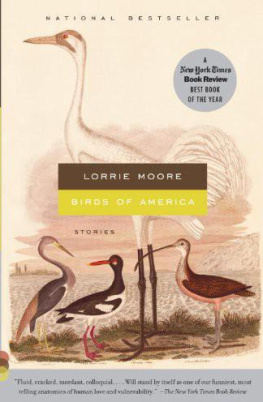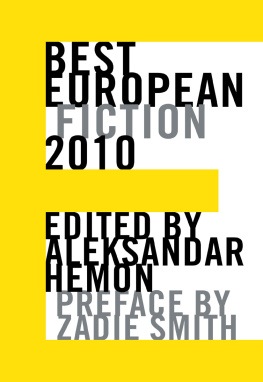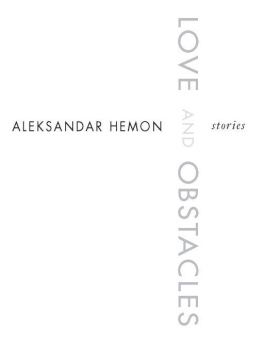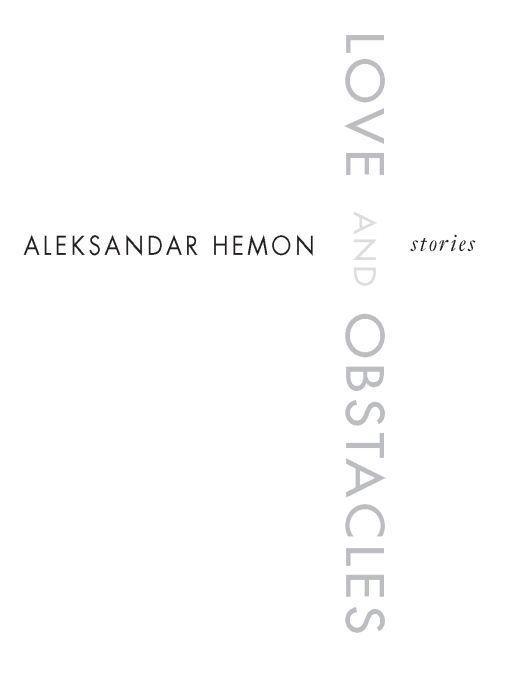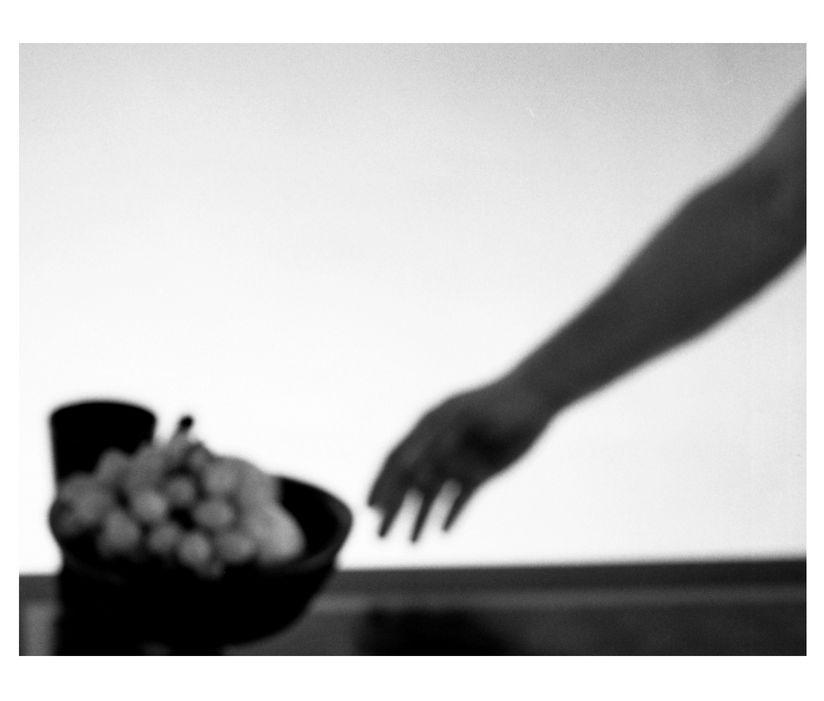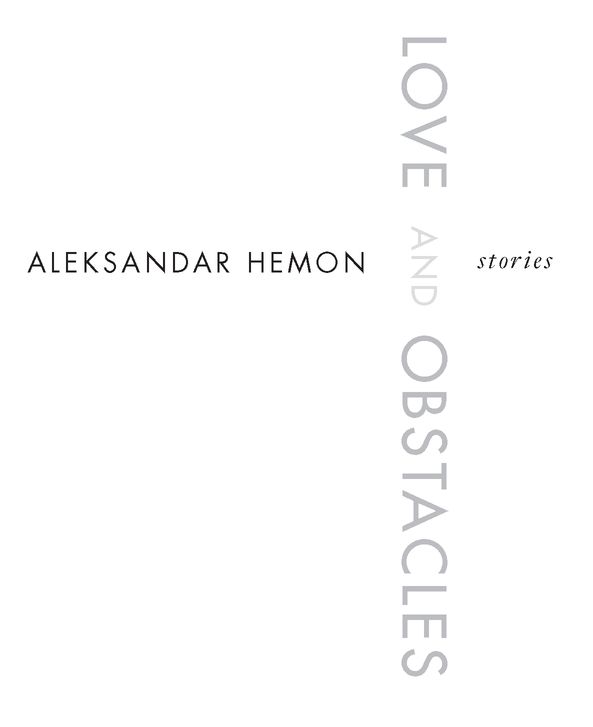Table of Contents
ALSO BY ALEKSANDAR HEMON
The Lazarus Project
Nowhere Man
The Question of Bruno
RIVERHEADBOOKS | A MEMBER OF PENGUIN GROUP (USA) INC. | NEW YORK | 2009
For my parents
Stairway to Heaven
It was a perfect African night, straight out of Conrad: the air was pasty and still with humidity; the night smelled of burnt flesh and fecundity; the darkness outside was spacious and uncarvable. I felt malarial, though it was probably just travel fatigue. I envisioned millions of millipedes gathering on the ceiling over my bed, not to mention a fleet of bats flapping ravenously in the trees under my window. The most troubling was the ceaseless roll of drums: the sonorous, ponderous thudding hovering around me. Whether it meant war, peace, or prayer, I could not tell.
I was sixteen, of the age when fear aroused inspiration, so I turned on the light, dug up a brand-new moleskin journal from my suitcasethe drums still summoning the vast forces of darknessand wrote on the first page
Kinshasa 7.7.1983
only to hear my parents bedroom door violently open, Tata cursing and stomping away. I leapt out of bedSestra, startled, started whimperingand ran after Tata, who had already flipped on the lights in the living room. I bumped into Mama cradling her worrisome bosom in her arms. All the lights were on now; a gang of moths fluttered hopelessly inside a light fixture; there were cries and screams; cymbals crashed all around us. It was terrifying.
Spinelli, Tata exclaimed against the noise. What a dick.
Tata slept in flannel pajamas far more appropriate for an Alpine ski resort than for Africaair-conditioning allegedly hurt his kidneys. But before he left the apartment, he also put on a pith helmet, lest his bald dome be exposed to draft. When he furiously vanished into the drumming murk of the stairway, Sestra, now crying, pressed her face against Mamas side; I stood in my underwear, my feet cold on the bare floor, a pen still in hand. The possibility of his not returning flickered in the darkness; it did not cross my mind to go after him; Mama did not try to stop him. The stairway light went on, and we heard a plangent chime. The drums were still rolling; another plaintive ding-dong fit snugly into the beat. Tata abandoned the bell and started pounding at the door, shouting in his stunted English:
Spinelli, you are very crazy. Stop noise. We are sleep. It is four in the morning.
Our apartment was on the sixth floor; there must have been scores of people living in the building, but it appeared to have been abandoned in a hurry. The moment the stairway light went off again, the drumming stopped, the show was over. The door opened, and a nasal American voice said: Im sorry, man. I absolutely apologize.
By the time I went back to bed, it was dawning already. In the trees outside, a nation of birds replaced the blood-sucking bats and was now atwitter in a paroxysm of meaningless life. Sleeping and dreaming were beyond me now, nor could I write. Smoking on the balcony, I waited for everything to make sense until it couldnt. Down on the street a scarcely clad man squatted by a cardboard box with cigarettes lined up on it. There was nobody else on the street. It seemed that he was guarding the cigarettes from some invisible peril.
In the early eighties, Tata was absent, working in Zaire as a minor Yugoslav diplomat in charge of communications (whatever that meant). Meanwhile, in Sarajevo, I responded to the infelicity of adolescence and the looming iniquity of adulthood by retreating into books; Sestra was twelve, oblivious of the ache sprouting inside me; Mama was midlife miserable and lonely, which I could not see at the time, my nose stuck in a book. I read compulsively, only occasionally reaching the surface of common reality to take in a fetid breath of other peoples existence. I would read all night, all day, instead of doing my homework; in school, I would read a book hidden under the desk, a felony frequently punished by a junta of class bullies. It was only in the imaginary space of literature that I felt comfortable and safeno absent father, no depressed mother, no bullies making me lick the book pages until my tongue was black with ink.
I met Azra checking out books at the school library, and I immediately liked the readerly quietude on her bespectacled face. I walked her home, slowing down whenever I had something to say, stopping when she did. She had no interest in The Catcher in the Rye; I had not read Quo Vadis, feigned interest in The Peasant Uprising. It was clear, however, that we shared a passion for imagining lives we could live through othersa necessary ingredient of any love. Quickly we found a few books we both liked: The Time Machine, Great Expectations, And Then There Were None. That first day we talked mostly about The Dwarf from a Forgotten Country. We loved it, even though it was a childrens book, because we both could identify with a small creature lost in the big world.
We started dating, which meant that we often read to each other on a bench by the Miljacka, kissing only when we ran out of things to talk about, making out cautiously, as though letting it all go would have spent the quaint, manageable intimacy we had accrued. I was perfectly happy whispering a passage from Franny and Zooey or The Long Goodbye into her hair. So when Tata announced, upon his returning to Sarajevo on leave, that we would all spend the summer of 83 in Africa together, I felt a strange relief: if Azra and I were apart, we could resist the torturous temptation and eschew the taint that the body inescapably inflicts upon the soul. I promised I would write to her every day, in my journal, as letters from Africa would arrive long after my return. I would record every thought, I promised, every feeling, every experience, and as soon as I came back, we would reimagine it all together, reading, as it were, the same book.
There were many things I wanted to note down that first night in Kinshasa: the west ablaze, the east impenetrably dark as we crossed the equator at sunset; the perfect recollection of the smell of her hair; a line from The Dwarf from a Forgotten Country that we had both liked so well: I have to find my way home before the fall, before the leaves cover the path. But I wrote nothing and assuaged my conscience by ascribing it to the drumming disturbance. What I didnt write stayed in the back room of my mind, like the birthday presents I was not allowed to open until everyone had left the party.
In any case, the following morning Sestra was in the living room, looking with vague fascination at a puny man in a T-shirt depicting an angel shot in midair. Mama was sitting across the coffee table from him, listening intently to his high-pitched warbling, her legs crossed, the hem of her skirt curved over the northern hemisphere of her knee.
Svratio komija Spinelli, she said. Nemam pojma ta pria.
Good morning, I said.
Good afternoon, buddy, Spinelli said. The day is almost over. He exposed a set of teeth evenly descending in size from the center toward the cheeks, like organ pipes. Sestra smiled along with him; he had both of his hands parked on his thighs, and they were calmly immobile, resting before the next task. Which was to push apart the two curls parenthesizing his forehead. The curls instantly returned to the original position, their tips symmetrically touching his eyebrows.


